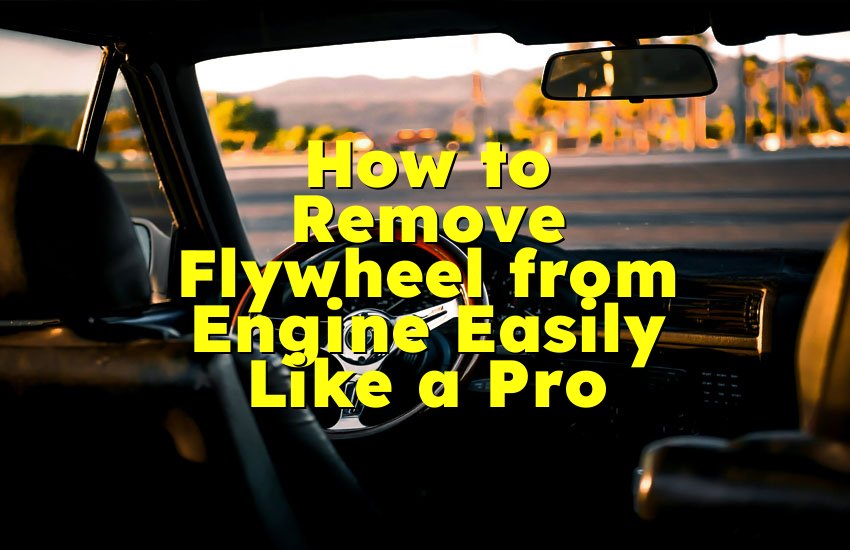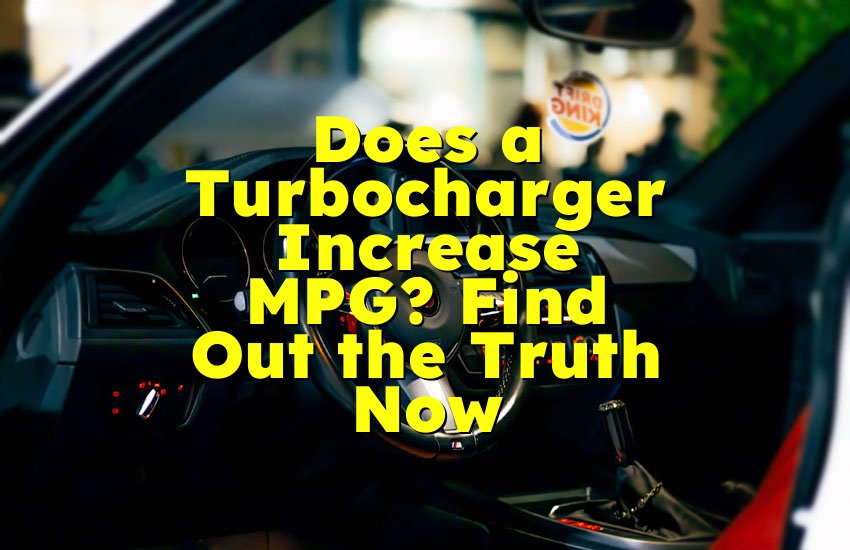As an Amazon Associate, I earn from qualifying purchases at no extra cost to you.
Turbocharged Engine vs Normal Engine: Which One Wins?
Engines are tricky, aren't they? You press the pedal, the car moves, but not all engines roar the same. Some feel like they're biting the road, while others feel soft and slow. If you ever wondered why one car jumps forward like a rocket while another just strolls, it's not magic—it's the engine. Today, we're diving deep into the battle between turbocharged engines and normal engines. Buckle up, this is going to be fun and eye-opening.
Turbocharged Engine vs Normal Engine: The Real Showdown
How They Work Differently
A normal engine is simple. It burns fuel in cylinders, creates energy, and moves the car. Air comes in naturally, fuel burns, and power comes out. It's predictable, reliable, and easy to maintain. Drivers know what to expect, and mechanics can fix issues quickly. The feel is smooth, steady, and consistent, which works well for daily driving.
A turbocharged engine adds a blower called a turbo. It uses exhaust gases to spin a turbine. That turbine pushes extra air into the cylinders. More air means more fuel can burn. The result? Extra power from the same size engine. Cars can feel faster, even though the engine isn't bigger. It's like giving a small dog the energy of a big one.
Turbo engines often respond differently depending on speed. They might lag a little at low speeds, then explode with power once the turbo kicks in. Normal engines feel steady all the time. Each system has trade-offs. The turbo gives bursts, while normal engines offer constant reliability.
- Normal engines burn fuel naturally, predictable power
- Turbo engines compress air for more fuel and power
- Turbo may feel laggy at low speeds
- Normal engines offer steady performance
Performance and Speed Comparison
Turbocharged engines shine in performance. They give more horsepower without needing a bigger engine. Cars accelerate faster, reach higher speeds, and often feel more exciting to drive. If you like overtaking quickly or feeling a strong punch from your pedal, turbo engines deliver. They are great for sporty cars or anyone who enjoys driving with energy.
Normal engines don't offer that immediate punch. They deliver smooth, gradual acceleration. It's comfortable, safe, and easy to predict. For everyday driving, commuting, and long trips, normal engines are often enough. You don't feel the thrill, but you also don't stress about sudden surges of power.
Turbo engines are often tuned to give bursts at certain RPMs. That means drivers feel a sudden rush. Normal engines keep power steady across the whole range. Choosing between them depends on what you want. Excitement? Go turbo. Simplicity? Stick with normal.
- Turbo engines give more horsepower and faster acceleration
- Normal engines are smooth and steady
- Turbo is better for sporty or performance cars
- Normal engines suit daily commuting and reliability
Fuel Efficiency and Costs
Turbo engines sound powerful, but they can be tricky with fuel. They burn more fuel when pushed hard. On light driving, they can be efficient because they are smaller engines producing more power. But heavy driving often reduces their advantage. Turbo engines are also more expensive to buy and maintain. Repairs cost more because of extra parts like the turbo, intercoolers, and sensors.
Normal engines are simpler. They consume fuel in a predictable way and cost less to maintain. Fewer parts mean fewer problems. Gas mileage may not be flashy, but costs are easier to manage. Insurance and repair bills can also be lower. Drivers who want reliability and long-term savings often choose normal engines.
Turbo engines can surprise you with fuel bills. Driving aggressively can burn through gas fast. Normal engines are steady and usually easier on the wallet. Choosing depends on your driving style and how much you care about fuel costs versus thrill.
- Turbo engines burn more fuel when driven hard
- Normal engines are simpler and cheaper to maintain
- Turbo cars cost more to repair
- Normal engines save money in the long run
Reliability and Longevity
Normal engines are workhorses. They last a long time with regular maintenance. Fewer moving parts mean fewer chances of failure. You can drive them hundreds of thousands of miles without major issues. Mechanics know them well, and parts are easy to replace. Reliability is the main reason people stick with normal engines.
Turbo engines are more complex. The extra heat and pressure can cause wear faster. Parts like the turbocharger may need replacement sooner. Regular maintenance is critical. Ignoring oil changes or proper care can lead to expensive failures. Still, with careful use, modern turbo engines can be reliable too. Technology has improved, but the risk is higher than normal engines.
Drivers who want peace of mind often prefer normal engines. Those chasing excitement can choose turbo engines but must be ready for more care. The decision is about lifestyle and how much attention you give to your car.
- Normal engines last longer and are simpler
- Turbo engines are more complex and need more care
- Regular maintenance is essential for turbo engines
- Normal engines give peace of mind
Driving Experience and Feel
Turbo engines give a punchy, thrilling drive. Press the pedal, feel the boost, and enjoy quick acceleration. Cars feel lively, almost like they are alive. It's fun for open roads, mountain drives, or racing tracks. The sound can be sharper, the feel more dynamic. Drivers often describe turbo cars as exciting companions for the road.
Normal engines feel steady and controlled. Acceleration is smooth, and power delivery is predictable. It's comfortable, less stressful, and reliable in traffic or long trips. Some drivers prefer this because it's consistent and easy to manage. You always know how your car will respond, which adds confidence, especially in daily driving.
Both types give unique feelings. Turbo is exciting and thrilling. Normal is calm and dependable. Your choice depends on whether you want heart-pounding excitement or simple, stress-free driving.
- Turbo engines offer thrilling acceleration
- Normal engines deliver steady, predictable power
- Turbo cars feel lively and dynamic
- Normal cars feel calm and reliable
Maintenance and Ownership Tips
Owning a turbo engine requires attention. Oil quality matters, and regular changes are essential. Cooling systems must be checked, and the turbo needs care. Driving habits affect longevity. Gentle acceleration and avoiding overheating can extend life. Ignoring maintenance can lead to costly repairs quickly.
Normal engines are more forgiving. Standard oil changes, belts, and filters are usually enough. They tolerate everyday mistakes better. Ownership costs are lower, and finding parts is easy. Mechanics are familiar, which reduces headaches. For many, this reliability outweighs the thrill of a turbo.
Learning about each engine helps you plan. Turbo engines offer fun but cost more in time and money. Normal engines offer peace of mind and fewer surprises. Both can serve you well if you understand what to expect.
- Turbo engines need careful maintenance
- Normal engines are forgiving and easier to maintain
- Good habits extend engine life
- Ownership costs are lower for normal engines
Final Thoughts
Turbocharged engines excite with speed, bursts of power, and a lively feel. Normal engines comfort with reliability, predictability, and low costs. Choosing between them depends on your priorities: thrill versus simplicity. Both types have strengths, so understanding them helps you pick wisely.
| Feature | Turbocharged Engine | Normal Engine |
|---|---|---|
| Power Output | Higher horsepower from smaller engines; bursts of acceleration | Steady, predictable power; depends on engine size |
| Acceleration | Quick, punchy acceleration; ideal for overtakes | Smooth, gradual acceleration; reliable for daily driving |
| Fuel Efficiency | Can be efficient at low loads; burns more fuel when driven hard | Consistent fuel consumption; easier to predict fuel costs |
| Engine Complexity | More parts: turbo, intercooler, extra sensors | Simple design; fewer moving parts |
| Maintenance Needs | Higher: frequent oil changes, turbo checks, cooling system maintenance | Lower: standard oil changes, belts, filters |
| Reliability | More sensitive to heat and pressure; potential for faster wear | Highly reliable; fewer parts to fail |
| Longevity | Can last long with proper care; high-stress components may fail sooner | Generally long-lasting; durable with basic maintenance |
| Driving Experience | Exciting, lively, dynamic; turbo lag may occur | Calm, predictable, smooth; consistent response |
| Purchase Cost | Higher initial cost due to complexity and performance | Usually more affordable upfront |
| Repair Costs | Expensive; turbo and related components costly to replace | Lower; parts easy to find and cheaper to fix |
| Insurance | Higher premium for performance risk | Lower premium; simpler engine reduces risk |
| Tuning Potential | High potential for increased performance if done correctly | Limited performance increase without major modifications |
| Sound | Often sportier, louder, more aggressive | Quieter and less aggressive |
| Environmental Impact | Potentially higher CO2 emissions if driven aggressively | Typically lower emissions with steady driving |
| Ideal For | Sporty cars, highway overtakes, performance enthusiasts | Daily commuting, long trips, budget-conscious drivers |
Do Turbo Engines Use More Fuel Than Normal Engines?
Yes, turbo engines often use more fuel under heavy driving. When you push the pedal, the turbo adds air and fuel for more power. That extra combustion burns fuel faster. On city roads or light driving, they can be efficient, but aggressive driving reduces savings. Modern technology helps, but turbo engines still demand careful driving to maintain efficiency.
Normal engines are steadier. They don't push extra fuel for bursts of power. Gas mileage is consistent, which can be easier for budgeting. Drivers who prioritize fuel savings often prefer normal engines. Turbo engines reward excitement but can surprise you at the gas pump if not careful.
Both have advantages. Turbo for speed and excitement, normal for reliability and predictable fuel consumption. Choosing depends on what matters more to your driving style.
Can Turbo Engines Last As Long As Normal Engines?
Turbo engines can last long, but usually need more care. The extra heat and pressure wear parts faster than normal engines. Regular oil changes, quality fuel, and careful driving can extend their life. Modern turbos have improved durability, but still require more attention. Ignoring maintenance can lead to expensive repairs.
Normal engines are simpler. Fewer parts under stress mean they often outlast turbo engines. Mechanics can repair them easily, and they handle everyday driving without strain. Longevity is a major reason drivers trust normal engines for decades.
With proper care, a turbo can still reach high mileage. But generally, normal engines are the safer bet for long-term ownership. Maintenance discipline is the key for turbo longevity.
Do Turbo Engines Improve Car Acceleration Significantly?
Yes, turbo engines boost acceleration noticeably. They compress more air, burn more fuel, and produce higher horsepower. This means cars jump forward faster than similar-sized normal engines. Drivers often feel a sudden "push" when the turbo engages. On highways or overtakes, this can feel thrilling and safe.
Normal engines accelerate smoothly but lack sudden bursts. They provide steady, predictable motion, which is easier for daily driving. Turbo engines give excitement, but the power delivery may feel uneven at low speeds. Acceleration is faster with turbo, but requires some learning to control it properly.
Turbo engines are ideal for sporty driving. Normal engines are ideal for calm, comfortable rides. The choice depends on whether you want speed thrills or smooth everyday performance.
Can Normal Engines Be More Reliable Than Turbo Engines?
Absolutely. Normal engines are simpler with fewer moving parts. They handle heat and pressure well and don't rely on extra components like turbos. Repairs are easier and less costly. This makes them more reliable for long-term use.
Turbo engines face more stress. The turbine, extra pipes, and boosted pressure create potential failure points. Regular care can reduce risk, but normal engines generally face fewer surprises. Drivers who value low maintenance and peace of mind often prefer normal engines.
Both types can be reliable, but simplicity favors normal engines for worry-free ownership.
Do Turbo Engines Require Special Maintenance?
Yes, turbo engines need more attention than normal engines. Oil changes must be timely, and the right grade of oil is crucial. Cooling systems must be checked often. Turbochargers need gentle driving when cold. Ignoring these can lead to expensive repairs.
Normal engines are forgiving. Regular oil, filters, and belts usually keep them running well. Turbo engines reward careful care but demand higher attention. Drivers who enjoy a lively ride must stay disciplined to keep their turbo healthy.
Frequently Asked Questions (FAQs)
Is it safe to drive a turbocharged car every day?
Yes, it is safe, but care matters. Turbo cars handle daily driving, but sudden aggressive acceleration can stress parts. Routine maintenance ensures long life. Quality oil, coolant, and proper warm-up are key. Avoid pushing the turbo when the engine is cold. Regular checks prevent damage and expensive repairs. Most modern turbo cars are designed for daily use, combining reliability with fun driving.
Can a normal engine match turbo performance?
A normal engine can't match the peak power of a turbo. However, high displacement engines may feel strong at steady speeds. They provide smooth acceleration but lack sudden bursts. Turbos compress air for extra power, giving quicker acceleration in smaller engines. Normal engines focus on predictability, not thrill. Each serves a purpose: turbo for excitement, normal for reliability.
Do I need premium fuel for turbo engines?
Often yes. Many turbo engines require higher-octane fuel to avoid knocking. Knocking can damage the engine over time. Normal engines usually run fine on regular fuel. Using recommended fuel improves performance, efficiency, and longevity of a turbo engine. Following manufacturer guidelines prevents costly repairs and keeps the car running smoothly.
Is it expensive to repair a turbo engine?
Yes, repairs are generally higher. Turbos have more parts, like the turbine and intercoolers. If these fail, replacement costs are significant. Normal engines are simpler and cheaper to fix. Maintenance reduces risks, but turbo engines naturally demand more investment. Regular inspections and good driving habits lower repair needs.
Can I tune a turbo engine safely?
Yes, but it requires knowledge. Tuning changes boost levels and fuel delivery, affecting reliability. Incorrect tuning can cause damage. Professionals use proper software and parts to maintain safety. Normal engines can also be tuned, but turbos respond more noticeably. Safe tuning balances performance with engine health.
Do I feel lag in all turbo engines?
Not always. Some modern turbos minimize lag with advanced designs. Older or smaller turbos may have noticeable delay before power kicks in. Normal engines don't have lag. Drivers notice instant response in normal engines. Turbo lag varies with design, tuning, and engine size.
Is it worth buying a turbo car for city driving?
It can be. Turbos offer good power for quick overtakes or highway bursts. In city traffic, efficiency may drop due to frequent acceleration. Normal engines are easier for stop-and-go driving. Turbo adds thrill but requires careful driving. Consider your city routes and fuel costs before choosing.
Do I need extra insurance for turbo cars?
Possibly. Higher performance may raise insurance premiums. Turbo cars are often costlier to repair, which insurers factor in. Normal engines are simpler and cheaper to insure. Check policies carefully. Insurance varies by region, car model, and coverage type.











